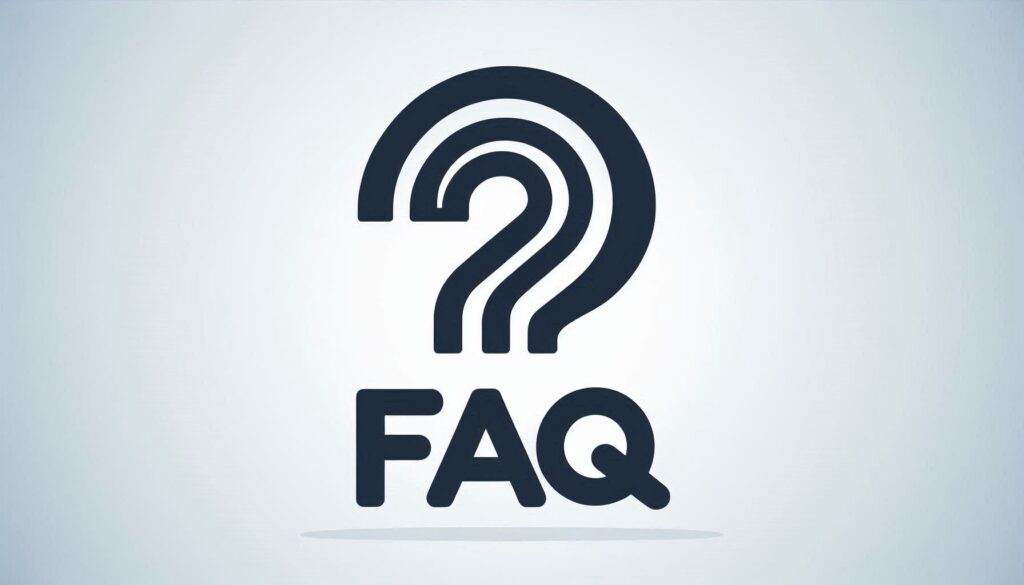Introduction
Modern academic life is demanding. Students juggle heavy course loads, extracurricular activities, part-time jobs, and personal responsibilities. It’s no surprise that many students feel overwhelmed and seek additional support to succeed. While the pressure to perform is high, it’s essential to maintain academic integrity. This blog post explores the ethical and legal landscape of online tutoring and mentoring services, offering guidance on how to use these resources responsibly to enhance your learning and achieve your academic goals. We’ll differentiate between legitimate academic support and unethical practices like contract cheating, and provide practical tips for finding and using reputable ethical online tutoring and mentoring services. We will also attempt to address the issues like how to improve grades through ethical tutoring and mentoring services while maintaining academic integrity.

Table of Contents
The Difference Between Tutoring and Academic Dishonesty
It’s crucial to understand the fundamental difference between legitimate academic support (like tutoring and mentoring) and academic dishonesty (like contract cheating). This distinction is at the heart of using external support ethically.
What is Legitimate Academic Support?
Legitimate academic support focuses on supporting you in learning and developing your own skills. It includes ethical tutoring services like:
- One-on-One Tutoring: A tutor explains concepts, answers questions, and provides personalized guidance to support you in understanding the material.
- Group Tutoring: Similar to one-on-one tutoring, but in a small group setting.
- Study Skills Workshops: Workshops that teach effective study techniques, time management, note-taking, and other essential academic skills.
- Academic Consultations: Feedback on your academic works from trained academic tutors, focusing on structure, clarity, grammar, and argumentation (but not rewriting your work for you).
- Academic Coaching: Guidance on goal-setting, time management, and overall academic success strategies.
- Feedback on Drafts: Receiving constructive criticism on your own work to guide you in identifying areas for improvement.
The key characteristic of legitimate support is that you remain the author of your work. You are actively engaged in the learning process, and the support you receive enable you to develop your own understanding and abilities.

What is Academic Dishonesty (Contract Cheating)?
Academic dishonesty, particularly contract cheating, involves having someone else complete your academic work for you. This includes:
- Purchasing essays or assignments online.
- Hiring someone to take an exam or quiz in your place.
- Submitting work that you did not create yourself.
- Having someone else write a substantial portion of your assignment.
Contract cheating is a serious breach of academic integrity and can have severe consequences, including failing grades, suspension, or even expulsion from your institution. It also undermines the value of your education and prevents you from developing the skills you need to succeed.

The Ethical Considerations of Using Online Tutoring and mentoring Services
Beyond the legal aspects, there are important ethical considerations when using tutoring and mentoring services.
Why is Academic Integrity Important?
Academic integrity is the foundation of higher education. It ensures that:
- Learning is Genuine: You develop your own knowledge and skills.
- Grades are Fair: Your grades reflect your own effort and understanding.
- Degrees are Meaningful: The value of a degree depends on the integrity of the academic process.
Violating academic integrity undermines the entire system and can have long-term consequences for your reputation and career.

Using Tutoring and Mentoring Services Ethically
To use tutoring and mentoring services ethically:
- Focus on Learning: Use tutoring to understand the material, not to get answers.
- Do Your Own Work: Always submit your own original work.
- Cite Sources Properly: If you receive guidance on research or use any external sources, cite them correctly.
- Be Transparent with Your Tutor: Clearly explain your needs and the level of support you’re seeking.
- Be Transparent with Your Professor: If you are unsure whether a particular type of support is permitted, ask your professor or teaching assistant. It’s always better to be upfront and avoid any misunderstandings.

Benefits of Using Online Tutoring and Mentoring Services Responsibly
When used ethically and responsibly, tutoring and mentoring services can offer significant benefits:
Improved Understanding
A good tutor can explain complex concepts in a clear and personalized way, assisting you overcome learning obstacles and develop a deeper understanding of the subject matter.
Enhanced Writing Skills
Tutors can provide valuable feedback on your writing skills, supporting you in improving your grammar, structure, argumentation, and overall writing style.
Better Time Management
Tutors can guide you in developing effective study strategies and managing your time more efficiently, reducing stress and improving productivity.
Reduced Stress
Knowing you have access to expert support can significantly reduce academic stress and anxiety.
Higher Quality Work
By improving your understanding and skills, tutoring and mentoring can empower you in producing higher-quality work that reflects your own abilities.

How to Find and Choose a Reputable Ethical Online Tutoring Service
Choosing the right tutoring and mentoring service is crucial for ensuring a positive and ethical experience. Here are some tips:
Look for Clear Policies on Academic Integrity
A reputable tutoring service will have a clear and explicit policy on academic integrity, stating that they do not condone or support any form of academic dishonesty.
Read Reviews and Testimonials
Look for reviews and testimonials from other students, focusing on the quality of the online tutoring and the tutor’s ability to explain concepts effectively.
Prioritize Services that Emphasize Learning
Choose a service that focuses on supporting you in learning and developing your skills, not just on getting good grades.
Beware of Red Flag
Avoid services that:
- Guarantee specific grades.
- Offer to complete assignments for you.
- Have unclear or hidden pricing.
- Lack a clear policy on academic integrity.

Using Online Tutoring and Mentoring Services Effectively and Ethically
To get the most out of tutoring and ensure you’re using it ethically:
Be Prepared for Tutoring and Mentoring Sessions
Come to each session with specific questions and areas where you need academic support. Bring any relevant materials, such as your assignment instructions, notes, and drafts.
Ask Questions and Seek Clarification
Don’t be afraid to ask your tutor to explain things multiple times or in different ways. The goal is for you to understand the material.
Focus on Learning, Not Just on How to Improve Grades
Focus on understanding the concepts and developing your skills, rather than just trying to get the “right answer.”
Always Cite Your Sources
If your tutor supports you in finding resources or providing information that you use in your work, be sure to cite them properly.
Understand Your Institution's Policies
Always follow your university’s academic integrity policies, even if the tutoring service’s policies seem less strict.

Case Studies: Ethical Use of Online Tutoring Services
Case Study 1: Overcoming Challenges in a Statistics Course
Sarah, a sophomore, was struggling with her introductory statistics course. She understood the basic concepts but had difficulty applying them to problem sets. She sought support from a tutoring service. Her tutor:
- Explained the statistical formulas in a different way.
- Worked through example problems with Sarah, step-by-step.
- Assisted Sarah identify her specific areas of weakness.
- Provided practice problems for Sarah to work on independently.
Sarah used the tutoring sessions to improve her understanding of the material. She completed all her assignments herself, and her grades improved significantly. This is an example of ethical and effective use of tutoring.
Case Study 2: Improving Essay Writing Skills
David, a junior, was a strong student in his history courses, but he struggled with writing essays. He consistently received low grades on his papers, despite understanding the historical content. He decided to work with a writing tutor. The tutor:
- Supported David in understanding the structure of a strong history essay.
- Provided feedback on David’s drafts, focusing on argumentation, clarity, and grammar.
- Showed David how to properly cite sources and avoid plagiarism.
- Did not rewrite David’s essays for him.
David used the feedback to improve his writing skills. He learned how to structure his arguments more effectively, write clearer prose, and properly cite his sources. His essay grades improved, and he felt more confident in his writing abilities. This is another example of ethical and effective use of tutoring.
Conclusion: Empowering Yourself Through Ethical Learning
Ethical online tutoring and mentoring services can be invaluable resources for students who are struggling or simply want to improve their skills. However, it’s essential to use these services ethically and responsibly. Always prioritize learning and understanding, do your own work, and adhere to your institution’s academic integrity policies. By using tutoring and mentoring services in the right way, you can empower yourself to achieve academic success while maintaining your academic integrity.

Frequently Asked Questions (FAQs)

No, using a tutoring and mentoring service is not cheating as long as you use it to learn and develop your own skills. It is cheating to have someone else complete your work for you.
Tutoring focuses on training and supporting you in understanding the material and developing your own abilities. Contract cheating involves having someone else complete your work for you.
Yes, you can get feedback on your writing skills from a tutor. A tutor can coach you in grammar, structure, argumentation, and clarity. However, the tutor should not rewrite your work for you.
Focus on learning, ask questions, do your own work, cite your sources, and follow your institution’s academic integrity policies.
Ask your professor or teaching assistant for clarification. It’s always better to be safe than sorry.
The consequences of academic dishonesty can be severe, including failing grades, suspension, or even expulsion from your institution.
Yes, a tutor or mentor can help you in developing effective research strategies, identifying credible sources, and understanding how to properly cite your sources. However, the tutor or mentor should not conduct the research for you.
Yes, a tutor or mentor can support you in reviewing course material, explaining difficult concepts, and practicing sample questions. However, the tutor or mentor cannot provide assistance during the exam.

